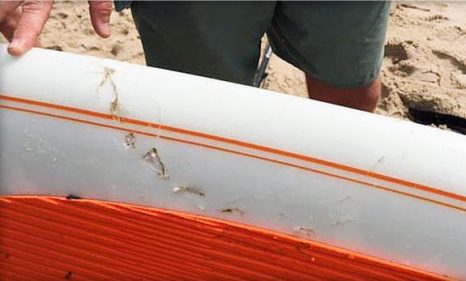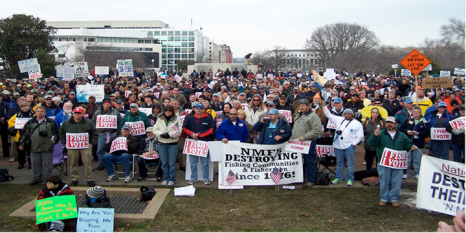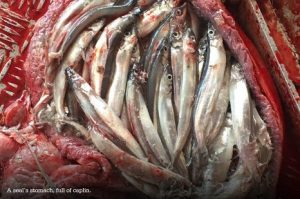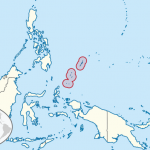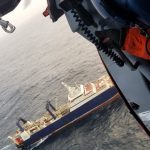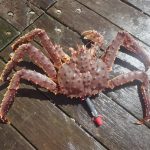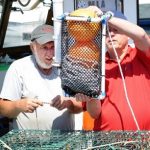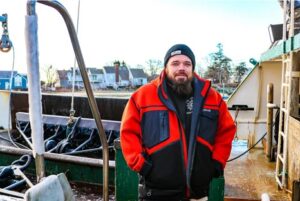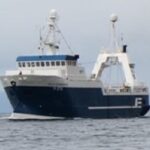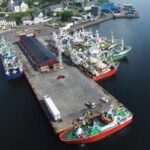Daily Archives: August 23, 2017
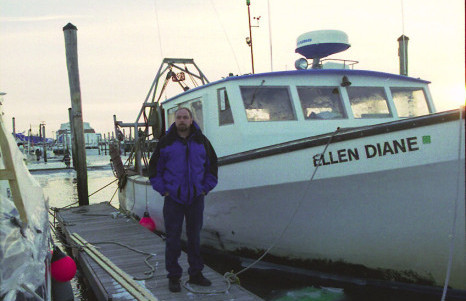
Your View: Even ‘smart’ video monitoring is onerous to fishermen
I would like to make several observations regarding Michael Bonner’s Aug. 21 article, “Delegation supports Rafael’s forfeiture toward electronic monitoring.” First of all, state legislators’ support for utilizing the forfeiture to fund the electronic monitoring (surveillance), presupposes that this form of electronic monitoring will be supported and adopted. It surely does not seem to be the favored choice of monitoring, as far as the groundfish industry is concerned. In fact, they are not in favor of any form of monitoring that has been proposed to date. NOAA fisheries Regional Administrator John Bullard (soon to be retiring) is quoted as saying that he thinks that video monitoring is a major benefit to the industry. I’m not sure who he thinks he’s going to convince with that statement. Surely not the fishing industry. If that were the case, New Hampshire fisherman David Goethel likely would not be requesting that this “benefit” be reviewed by the U.S. Supreme Court, click here to read the op-ed by Jim Kendall 19:04
Another chance to prosper
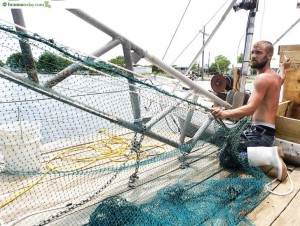 It began quietly, this year’s white shrimp season, on Friday. If you know how to look for the rhythms of the bayous, you could see the boats heading out, some Thursday night, some even earlier. On those vessels large and small ride the cultural lifeblood of this region, one of the things that makes us different from everywhere else. Commercial fishing is seen by many as a relic of the past, but the dollars that it pumps into the local economy is anything but yesterday’s news. The boats are so much more than boats. They are in essence the equivalent of family-owned stores. click here to read the story 17:16
It began quietly, this year’s white shrimp season, on Friday. If you know how to look for the rhythms of the bayous, you could see the boats heading out, some Thursday night, some even earlier. On those vessels large and small ride the cultural lifeblood of this region, one of the things that makes us different from everywhere else. Commercial fishing is seen by many as a relic of the past, but the dollars that it pumps into the local economy is anything but yesterday’s news. The boats are so much more than boats. They are in essence the equivalent of family-owned stores. click here to read the story 17:16
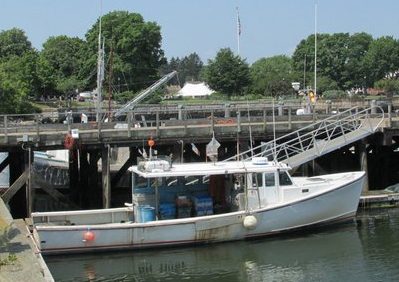
Athearn Marine Agency Boat of the Week: 42′ Provincial Fiberglass Lobster/Tuna, 400HP, 6 Cylinder Volvo
Specifications, information and 3 photos click here To see all the boats in this series, Click here 14:19
FISH-NL releases correspondence in response to its call for immediate vote for inshore harvesters to decide their union fate
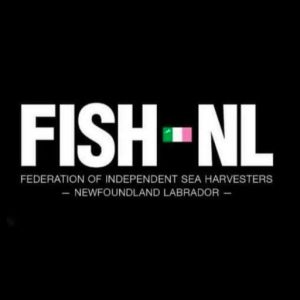 The Federation of Independent Sea Harvesters of Newfoundland and Labrador (FISH-NL) was forwarded correspondence today in response to its Aug. 15th letter asking the Labour Relations Board to proceed immediately with a vote of inshore harvesters to decide which union they want to represent them. The correspondence is from the Association of Seafood Producers (ASP), and the FFAW-Unifor. “FISH-NL believes in complete transparency,” said Ryan Cleary, President of FISH-NL. “In that light, both letters are attached.” click here to read the press release and letters 13:45
The Federation of Independent Sea Harvesters of Newfoundland and Labrador (FISH-NL) was forwarded correspondence today in response to its Aug. 15th letter asking the Labour Relations Board to proceed immediately with a vote of inshore harvesters to decide which union they want to represent them. The correspondence is from the Association of Seafood Producers (ASP), and the FFAW-Unifor. “FISH-NL believes in complete transparency,” said Ryan Cleary, President of FISH-NL. “In that light, both letters are attached.” click here to read the press release and letters 13:45
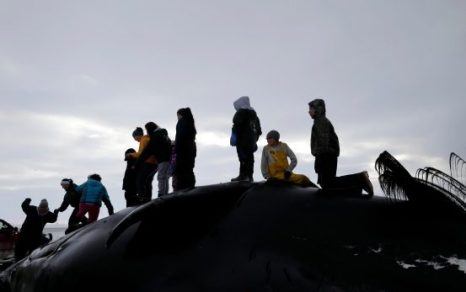
Feds review annual bowhead whale quotas for Alaska Native hunters
Federal officials are reviewing annual catch limits for 11 Alaska Native communities whose subsistence hunters are authorized to harvest bowhead whales. The National Oceanic and Atmospheric Administration (NOAA) says the public has until Sept. 14 to comment on quotas for a six-year period to begin in 2019. The International Whaling Commission, which has final say on quotas for subsistence harvesting of large whales, meets next in Brazil in 2018. click here to read the story 10:46
‘Deadliest Catch’ tragedy: Sig Hansen in tears as crab fishermen friends are lost at sea
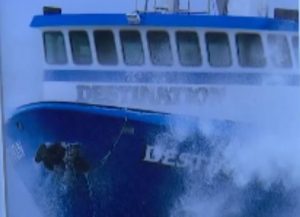 Crab fishing is a dangerous profession and that was made tragically clear on Tuesday night’s emotional episode of “Deadliest Catch.” On the Discovery Channel show, the captains were devastated to learn that the Destination, the ship of their friend Jeff Hathaway, had gone missing off the coast of Alaska. Hathaway and his crew couldn’t be found. The Bering Sea had been fierce all winter and as the episode began, veteran Sig Hansen noted, “We have had our close calls. It makes me wonder, how many chances do we get?” Sadly, unbeknownst to the skippers, the coast guard was searching for a missing vessel that had set off a distress signal. click here to read the story 09:53
Crab fishing is a dangerous profession and that was made tragically clear on Tuesday night’s emotional episode of “Deadliest Catch.” On the Discovery Channel show, the captains were devastated to learn that the Destination, the ship of their friend Jeff Hathaway, had gone missing off the coast of Alaska. Hathaway and his crew couldn’t be found. The Bering Sea had been fierce all winter and as the episode began, veteran Sig Hansen noted, “We have had our close calls. It makes me wonder, how many chances do we get?” Sadly, unbeknownst to the skippers, the coast guard was searching for a missing vessel that had set off a distress signal. click here to read the story 09:53
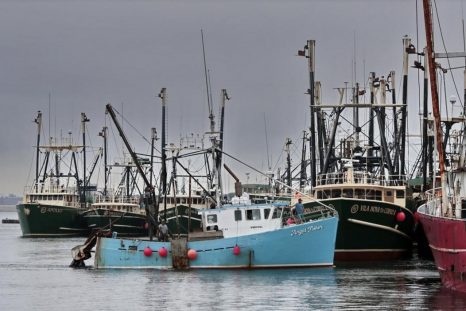
Coast Guard hosts meeting to decrease oil spills in New Bedford harbor
The Coast Guard, Massachusetts’ Department of Environmental Protection, the New Bedford Harbor Development Council and the Fairhaven Harbormaster agreed that 95 percent of the oil pollution in the harbor is caused by about 5 percent of the vessels using it. For two hours Tuesday, the organizations led a meeting targeting those who illegally dump oil into the harbor. However, the fishermen who attended the meeting likely aren’t the ones polluting. “As soon as somebody gets caught and they get hit with the a fine, that’s going to turn some people’s heads,” Ed Anthes Washburn, director of the port and HDC, said. click here to read the story 08:50






